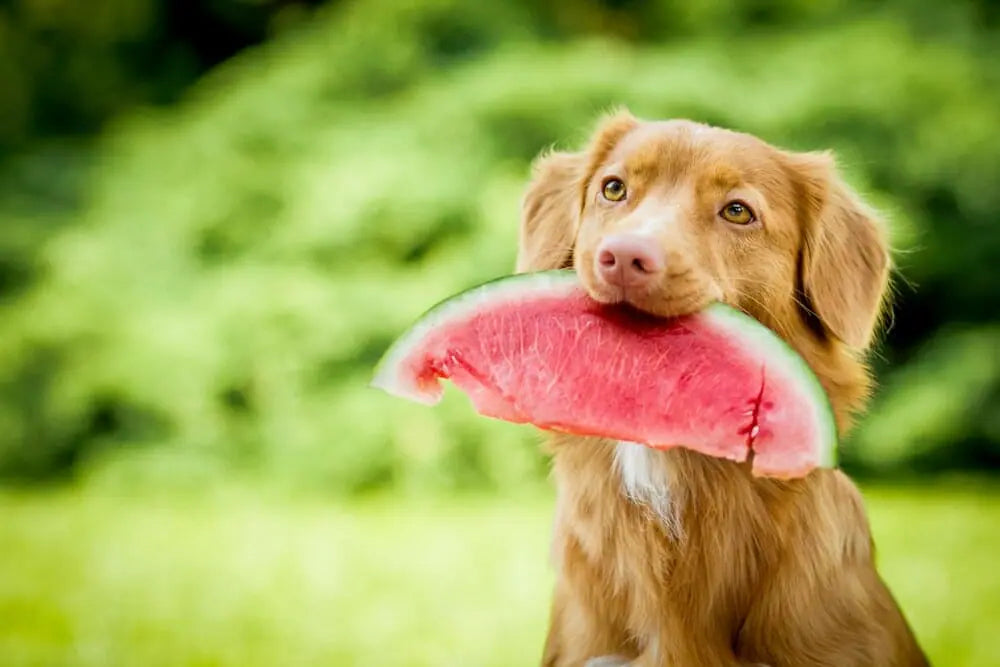
Can My Dog Eat That? A Guide to Dog-Safe Human Foods
Share
It’s one of the most common things dog owners wonder: “Can I give my dog a bite of this?” Whether it’s a bit of banana from your breakfast or a piece of chicken from your dinner, it’s natural to want to share food with your furry best friend.
The good news? Some human foods are perfectly safe for dogs and can even offer health benefits. The bad news? Others can be harmful — or even dangerous. So how do you know the difference?
Let’s take a look at some common human foods that are dog-safe, and what to avoid.
Fruits and vegetables your dog can enjoy
Many fruits and vegetables make brilliant treats for dogs. Apples (with the core and seeds removed) are sweet and crunchy. Carrots are low in calories and make a satisfying chew, especially chilled on a hot day. Blueberries, packed with antioxidants, are perfect for a little training snack, and bananas — while a bit high in sugar — are safe in small amounts and most dogs love them.
Dogs can also enjoy things like cucumber, green beans, sweet potato (cooked), and even a little bit of plain pumpkin. These are not only safe but often quite healthy in moderation. Just make sure to cut food into appropriate sizes and avoid adding salt, butter, or seasoning.
Meat and dairy: keep it plain and simple
Cooked meats are generally fine for dogs, as long as they’re boneless and unseasoned. Plain chicken, turkey, beef, or lamb are all safe, and can even be a great source of protein. If your dog’s ever had an upset stomach, you might already know that plain boiled chicken and rice is a go-to meal.
When it comes to dairy, some dogs are more sensitive than others. A little bit of cheese is usually okay, but too much can upset their stomach — especially if they’re lactose intolerant. Small amounts of plain yoghurt are often tolerated better, but it’s best to keep dairy as an occasional treat.
Foods to avoid completely
There are certain foods that might be fine for humans but are toxic or dangerous to dogs. Grapes and raisins can cause kidney failure, even in small amounts. Chocolate, especially dark chocolate, contains theobromine — which is poisonous to dogs. Onions, garlic, and leeks are also a no-go, as they can damage red blood cells.
You’ll also want to avoid anything containing artificial sweeteners like xylitol, which is extremely toxic to dogs and often found in sugar-free gum, sweets, and even peanut butter. And while peanut butter itself is safe (and a popular Kong filler), always check the ingredients first.
What about leftovers?
It’s tempting to give your dog a bit of your dinner, but human meals are often too salty, spicy, or rich for their digestive system. Gravy, sauces, and fatty scraps can cause upset stomachs — or in some cases, more serious issues like pancreatitis. If you’re offering leftovers, keep them plain and simple, and only in small amounts.
Final thoughts
Sharing a little food with your dog can be a lovely bonding moment — as long as it’s done safely. Stick to plain, healthy options, introduce new foods slowly, and always watch out for signs of allergies or upset stomachs. If in doubt, a quick check with your vet can save a lot of worry.
And if you’d rather leave the treat-choosing to someone else, Rusty’s Pet Pantry boxes are filled with dog-safe, hand-picked snacks your pup will love — so you never have to guess what’s okay again.
